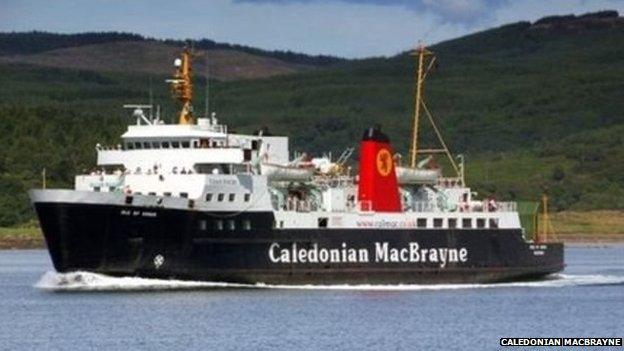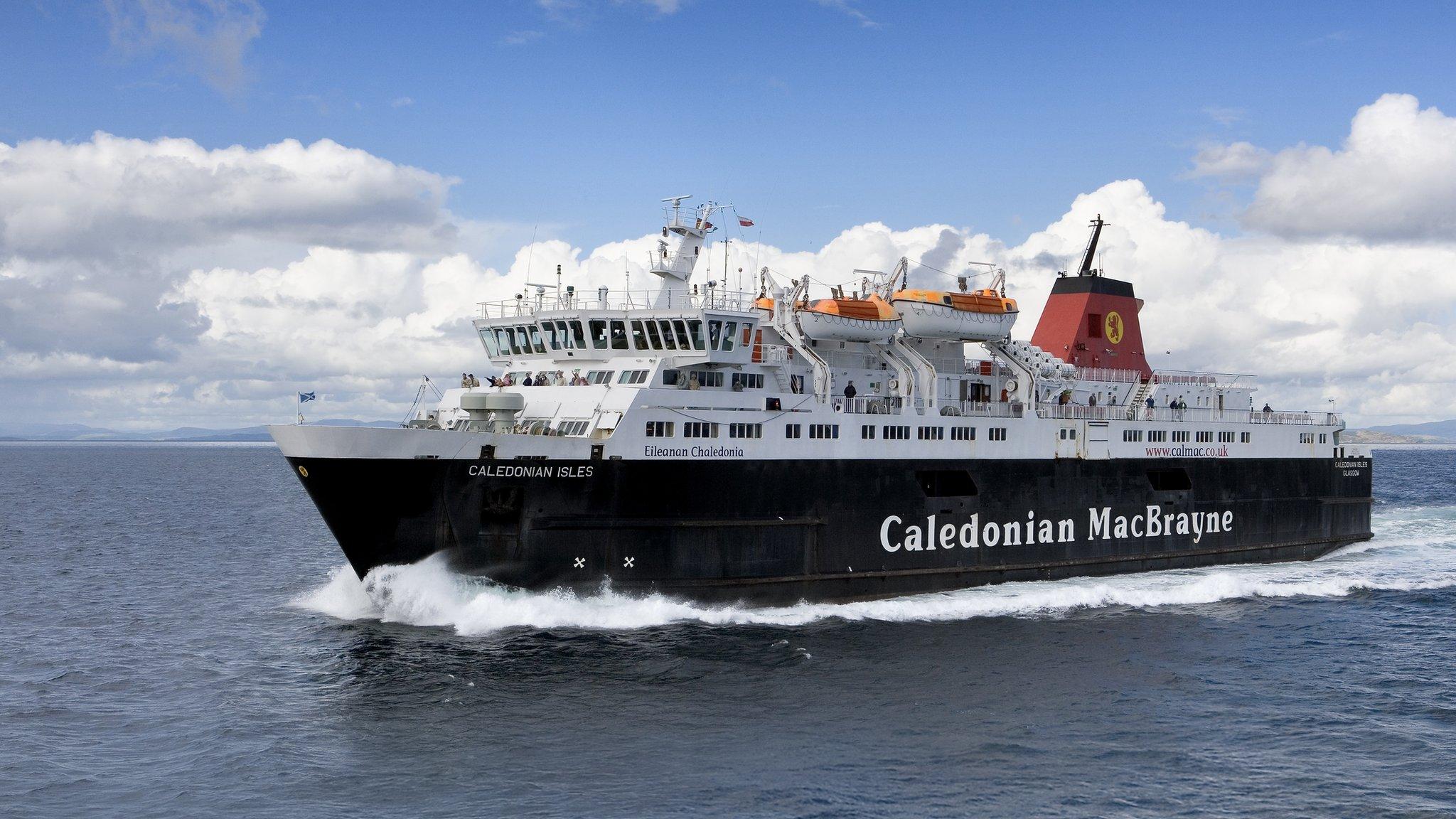RMT union members vote for CalMac strike
- Published

Caledonian MacBrayne ferry services could face disruption after members of the RMT union voted in favour of strike action.
The dispute is over job security, conditions and pensions.
The union said it remained available for talks with the company to resolve the dispute.
A spokesman for CalMac said they had only just begun talks with the RMT and were concerned a strike may prevent both sides reaching an agreement.
The RMT said its members voted by 92% for strike action and by 98% for action short of a strike in a turnout of 60%.
Overall, 55% of the total number eligible to vote backed strike action and 58% of the total eligible voted for action short of a strike.
'Basic assurances'
The union said the industrial relationship with CalMac on the Clyde and Hebrides network has "deteriorated" in recent months to such an extent that it had "no choice" but to declare a formal dispute with the company.
The union claimed the ferry operator had failed to provide it with satisfactory reassurances over job security, conditions of service, pensions and continuity of lifeline ferry services for remote communities and businesses.
RMT general secretary Mick Cash said: "The failure to give our members the most basic assurances meant that RMT had no alternative but to ballot CalMac members for strike action and industrial action short of strike action, in order to secure our members' rights during this period of increasing uncertainty and insecurity.
"That ballot has now concluded and members have delivered a massive and solid mandate for action.
"RMT remains available for serious and constructive talks aimed at resolving this dispute."
'Difficult issues'
CalMac has previously said it would seek to minimise disruption if a strike was to happen.
Acknowledging the result of the RMT ballot, a spokesman for the ferry operator said: "We recognise that there are difficult issues facing our employees currently.
"We acknowledge that our trade unions wish to support the interests of their members, however, we do not believe that taking steps toward industrial action is appropriate at this stage.
"We have only just entered dialogue on the matters. That process has only just started and hasn't had any chance to deliver progress. We would be concerned that a dispute now can only damage the prospects of reaching a mutually acceptable outcome.
"We remain committed to continuing the ongoing discussions with all trade unions."
- Published14 May 2015
